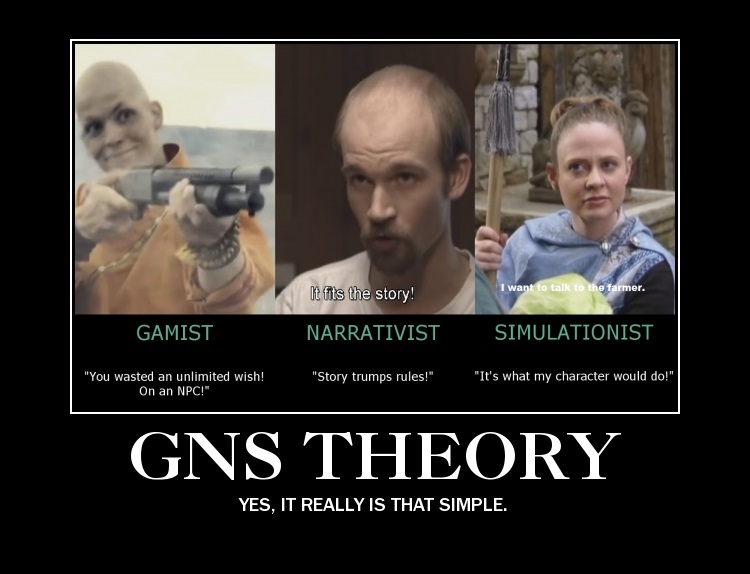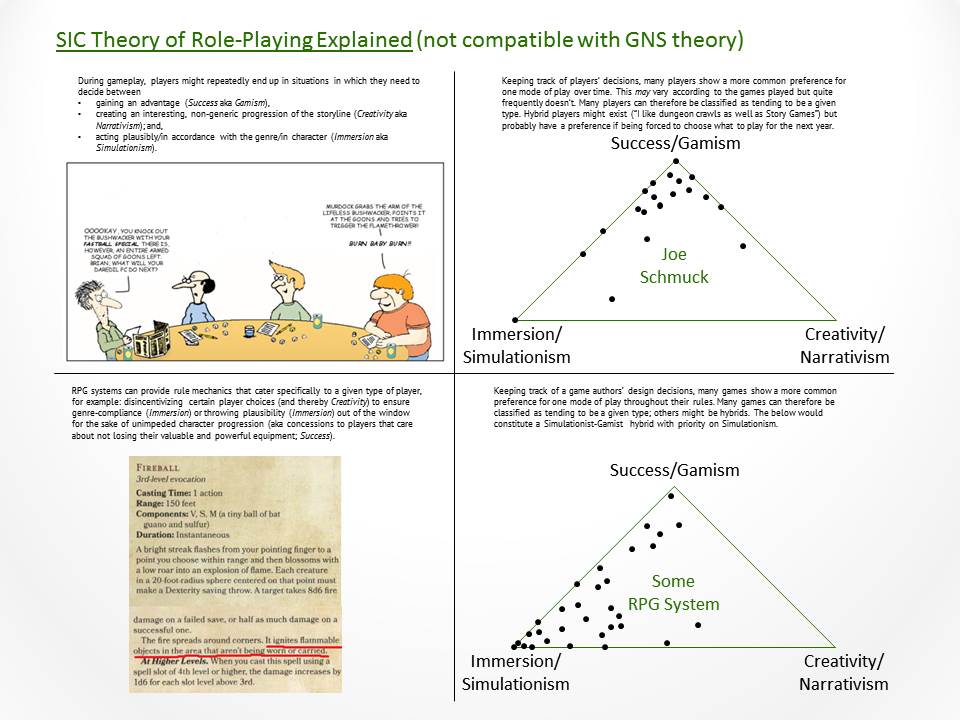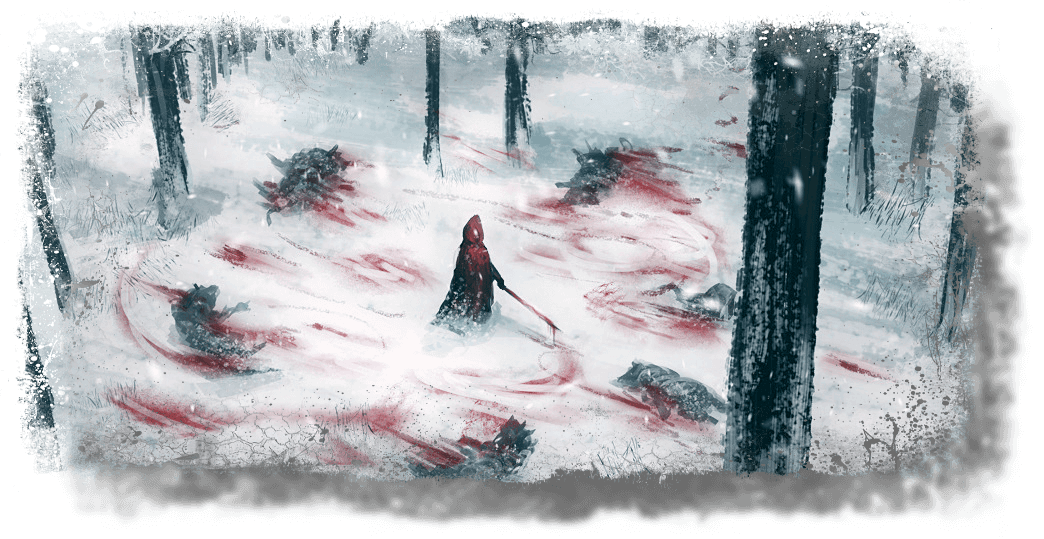First glimpse of Combat (Series on Crunch – Part III)
 A Responsive Action Economy
A Responsive Action Economy
The stated goal of the Knights of the Black Lily ruleset is to emulate the fantasy genre more faithfully than any other game before it and to challenge its players within these confines. One of the shortfalls of traditional fantasy RPGs in doing so lies in their lack of proper interruptability and reactivity:
- Interruptability: An enemy who has a readied arrow aimed at you is often not necessarily faster than your PC who has only a sword (or worse: a still sheathed sword) to swing at him, depending on who rolls higher Initiative scores.
- Reactivity: An enemy that takes a longer action (running up 20 meters, casting a spell that takes the entire round to complete, unlocking a door, etc.) should give you the opportunity to realize what is about to happen this round and to act accordingly.
 In a recent blog entry, game designer Zak Smith aka Zak Sabbath made a fairly exhaustive attempt at rebuking GNS theory. This post is a response to one of his central contentions. There is a companion blogpost that takes a further look at GNS theory and tries to boil its central components down so that they are easily understandable for everyone. Arguably, the core of Smith’s elaborate rebuttal revolves around a hypothetical scenario of Marvel’s Colossus and Wolverine fighting Mr Sinister, using the famed Fastball Special. This sample scenario is meant, according to Smith, to demonstrate that there are time and again situations in role-playing in which none of the 3 modes of GNS theory (Gamism, Narrativism, Simulationism) get prioritized over one another. A moment of complete blending of the three…
In a recent blog entry, game designer Zak Smith aka Zak Sabbath made a fairly exhaustive attempt at rebuking GNS theory. This post is a response to one of his central contentions. There is a companion blogpost that takes a further look at GNS theory and tries to boil its central components down so that they are easily understandable for everyone. Arguably, the core of Smith’s elaborate rebuttal revolves around a hypothetical scenario of Marvel’s Colossus and Wolverine fighting Mr Sinister, using the famed Fastball Special. This sample scenario is meant, according to Smith, to demonstrate that there are time and again situations in role-playing in which none of the 3 modes of GNS theory (Gamism, Narrativism, Simulationism) get prioritized over one another. A moment of complete blending of the three…  Towards a better understanding
Towards a better understanding The Problem: A sometimes overheard complaint about the venerable Call of Cthulhu role-playing game is that the players might collectively fail their test to spot a vital clue. Consequently, the party might get stuck in their investigations indefinitely – which is no fun! The role-playing game Trail of Cthulhu set out to solve the above Call of Cthulhu problem by creating game rules that ensure that so-called core clues can never be missed. This, however, replaces the Call of Cthulhu problem with the Trail of Cthulhu problem: people do like egghunts (that’s why there is an annual, literal egghunt every Easter Sunday), so how do we ensure that there is something at stake for your players in finding the clues and at the same time prevent them from getting stuck indefinitely?
The Problem: A sometimes overheard complaint about the venerable Call of Cthulhu role-playing game is that the players might collectively fail their test to spot a vital clue. Consequently, the party might get stuck in their investigations indefinitely – which is no fun! The role-playing game Trail of Cthulhu set out to solve the above Call of Cthulhu problem by creating game rules that ensure that so-called core clues can never be missed. This, however, replaces the Call of Cthulhu problem with the Trail of Cthulhu problem: people do like egghunts (that’s why there is an annual, literal egghunt every Easter Sunday), so how do we ensure that there is something at stake for your players in finding the clues and at the same time prevent them from getting stuck indefinitely? On Challenge-Driven Game Design.
On Challenge-Driven Game Design. The main staple of fantasy role-playing ever since its inception has been, of course, Dungeons & Dragons (and its direct derivatives). In fact, its success has been so comprehensive that it has spawned an entire class of (failed) imitative role-playing games dubbed fantasy heartbreakers. From a rule design perspective, the D&D family of games have always been prioritizing rules that cater to players who enjoy the ‘Game’ aspect in RPGs the most. In recent years, however, narrative games have become more widespread…
The main staple of fantasy role-playing ever since its inception has been, of course, Dungeons & Dragons (and its direct derivatives). In fact, its success has been so comprehensive that it has spawned an entire class of (failed) imitative role-playing games dubbed fantasy heartbreakers. From a rule design perspective, the D&D family of games have always been prioritizing rules that cater to players who enjoy the ‘Game’ aspect in RPGs the most. In recent years, however, narrative games have become more widespread…